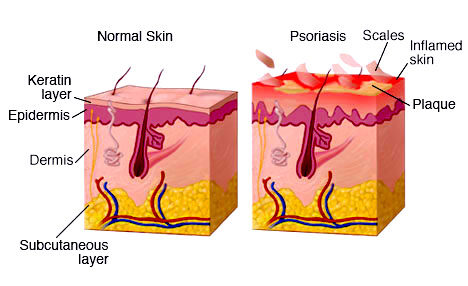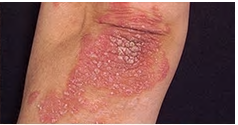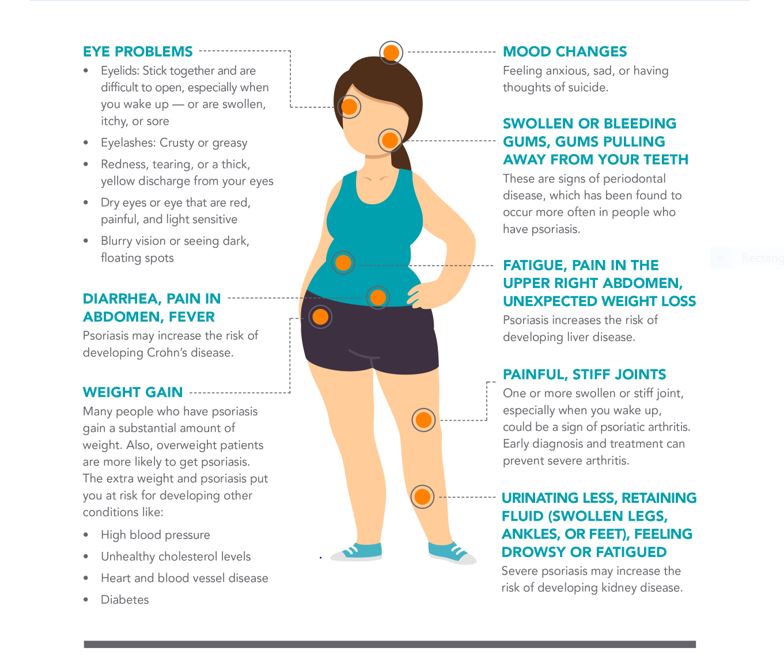Psoriasis
Psoriasis is an autoimmune skin disease whereby there is a dysfunction in immune cells known as T lymphocytes. Hyperactive T cells release large amounts of inflammatory proteins called cytokines, causing a rapid overgrowth of skin cells. There is strong evidence showing a partial genetic basis for psoriasis. It can appear at any age, but tends to be most common for age groups 20-30 y.o. and 50-60 y.o. Psoriasis affects men and women equally.

Generally, psoriasis is localized to one or several areas of the body. It commonly occurs on the scalp, elbows, and knees; but it can occur anywhere, even on nails and genitals. Affected skin appears as raised red areas covered with a thick silvery scale. These may or may not itch. 5-8% of people with psoriasis also have psoriatic arthritis, which presents as painful swelling and deformities of the joints.

Although there is no cure for psoriasis there are a number of ways to manage it. In many instances, psoriasis can be treated quite effectively; often to the point where it will be in remission for long periods. The type of therapy chosen depends on the extent of involvement of psoriasis, the particular areas of body involved, presence of psoriatic arthritis, and any other medical conditions. Treatments can range from a multitude of topical medications, phototherapy, oral immunomodulators, and self-administered injections of biologic agents (the newest medications).
Standard therapies include prescription topical agents, oral medications, and phototherapy. More recently there has been an explosion in the development of FDA -approved biologic agents. These molecules block specific pathways that are overactive in psoriasis, down regulating the overproduction of inflammatory interleukins 12, 17, and 23. Biologics have now made it possible to achieve virtually 100% clearance of psoriasis.
Psoriasis can affect more than the skin. Having psoriasis increases your risk of developing other medical conditions. Tell Dr. Wong if you have any of the following signs or symptoms.
